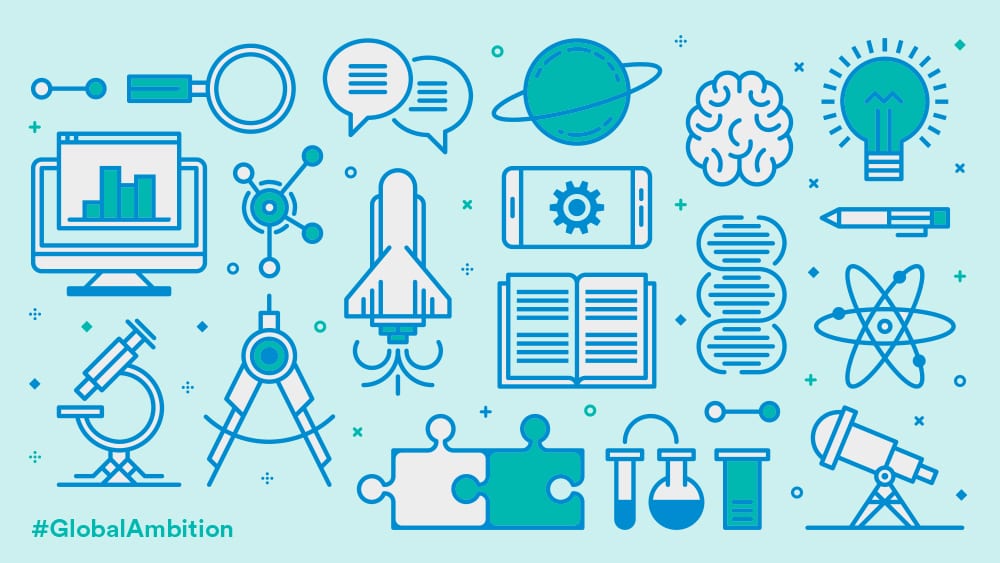Sean Burke of Enterprise Ireland describes the factors that enabled Ireland to achieve one of the highest success rates for the Horizon 2020 SME Instrument in Europe.
There are areas of innovation we excel at in Ireland and results that prove it. At 13%, Ireland has one of the highest success rates for the Horizon 2020 SME Instrument in Europe, compared to the EU average of 6%.
Horizon 2020 is the EU’s €80 billion programme to support research and innovation, which launched in 2014. A 7-year programme, it is due to end in December 2020. Ireland’s overall success rate exceeds the EU average, with €475 million in funding secured to date for more than 1,100 successful applications by 536 higher education researchers and 430 Irish companies.
The SME Instrument funds the programme’s most commercial applications and is designed to support innovative companies to realise global ambitions and turn strong business ideas into market leaders. Its commercial focus helps companies to convert findings from cutting-edge research into a productised offering for international markets. Delivering grant funding in the range of €1-€2.5 million to support 70% of project costs, no repayment or equity dilution is required. Those conditions make the SME Instrument very attractive to companies with ambitions to internationalise.
The programme is highly competitive. Only 6% of the 31,000 European companies that applied were successful. Projects that succeed are truly innovative, with the potential to disrupt the marketplace. Approval has become a mark of pedigree on an international scale. A successful application can be transformative, elevating a company into the position of market leader. Successful companies span sectors, with big winners in areas including biotech, energy, agriculture, food sustainability, health and environment.
Eight Irish companies were among 210 European SMEs that achieved Phase 2 funding of Horizon 2020’s SME Instrument in 2017. Securing €15.45 million between them from a budget of €297 million, they include companies like AltraTech, Axonista, Soapbox Labs, and SwiftComply.
Axonista received €1.7m in funding in 2017 to develop its interactive video technology product, Ediflo, which enables customers to bring multi-platform interactive story-telling experiences to market faster. COO Dee Coakley explains, “Our product originally served large enterprises through direct sales made by the founders. Horizon 2020 allowed us to hire product development specialists and build a team focused on simplifying the enterprise product for a broader market. New verticals include media companies and brands that want to deliver interactive experiences, using existing video content to better engage audiences.”
The Instrument’s application process thoroughly assesses each company’s proposed innovation-led solution and its potential to achieve market penetration. Project support covers every stage of the business acceleration lifecycle, from business definition to planning and execution leading to full commercialisation.
Axonista’s Horizon 2020 proposal was strengthened by Research & Development work they had recently undertaken. Dee explains, “The R&D grant we received from Enterprise Ireland really helped. The application for Phase 2 funding asks if you have undertaken feasibility research. Being able to describe what you learned from an R&D project and how it helped to identify an opportunity or develop a solution delivers a robust proposal.”
Enterprise Ireland leads the Irish Horizon 2020 National Support Network, the expertise of which acts as a resource for new and seasoned applicants. Enterprise Ireland’s team helps companies to determine the best Horizon 2020 programme to meet their needs, prepare for their initial engagement, and provides feedback to improve the draft proposal. The objective is to build on Ireland’s strong track record and provide hands-on assistance to Irish researchers and companies that participate in the programme.
All innovative Irish companies with an eye on international expansion should apply. An award of up to €2.5 million and the mark of pedigree that Horizon 2020 brings changes a company’s prospects. As Dee concludes, “From an investor’s perspective, securing Horizon 2020 is a validation of the business and your ambitions. Investors know that an investment of nearly €2 million has been made to push your offering past the competition. That validation gives you a lot of leverage.”
Enterprise Ireland’s Sean Burke works with Jill Leonard to support the SME Instrument and Fast Track to Innovation actions in the new European Innovation Council (EIC) pilot in Horizon 2020.
This article was originally published in the Sunday Independent.



